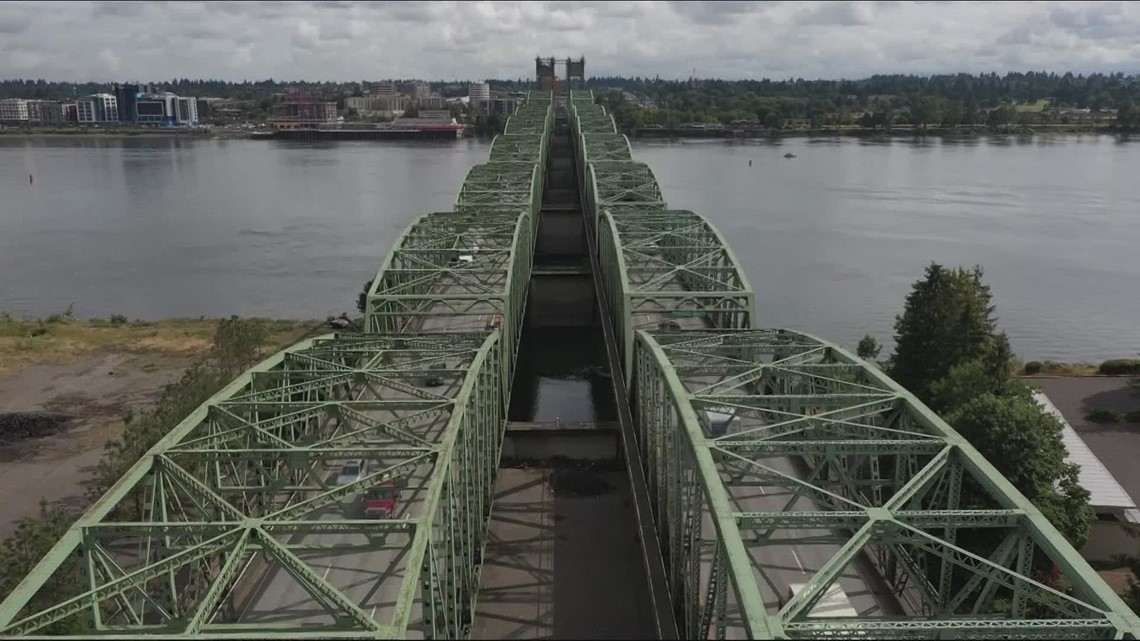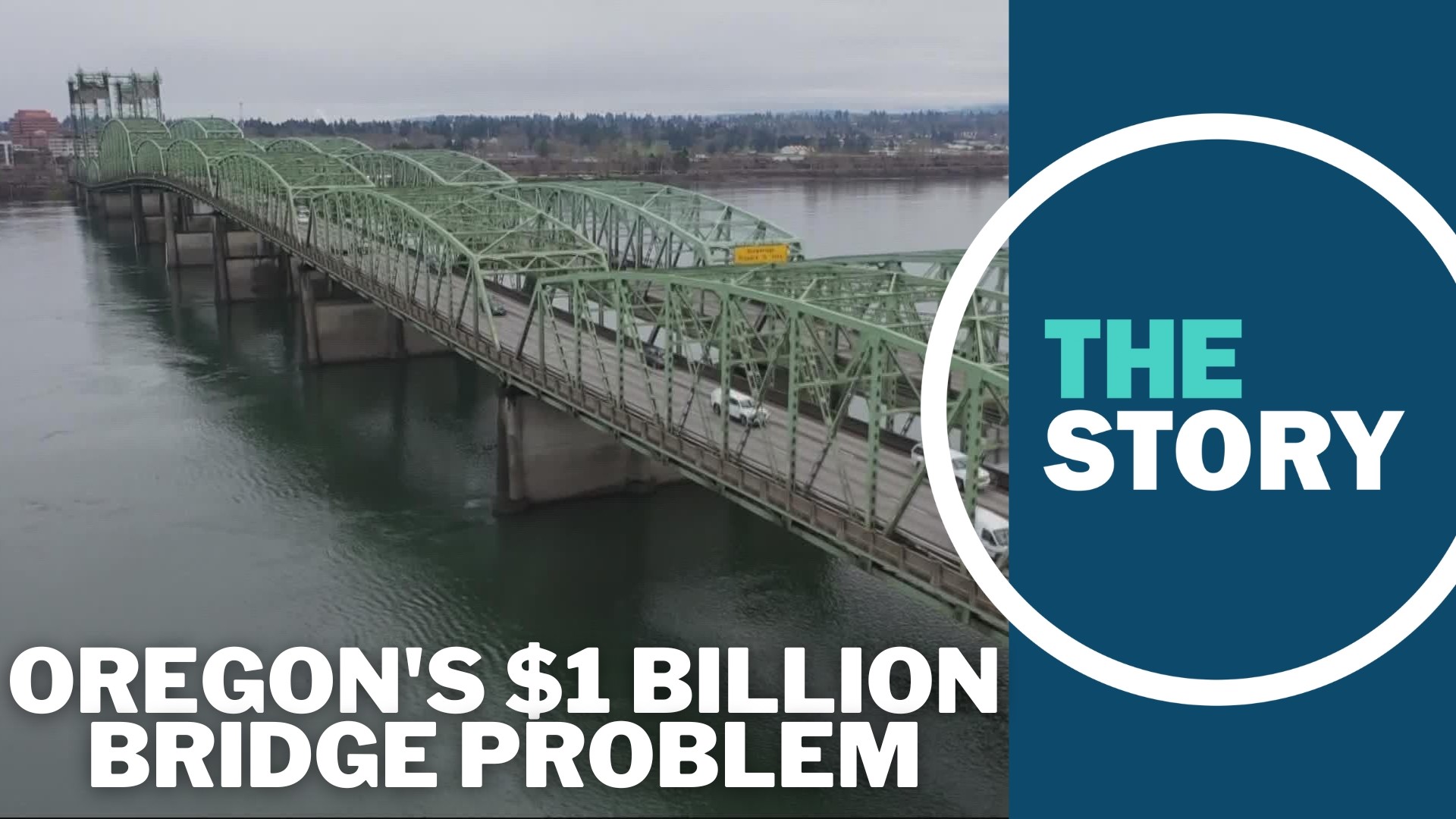PORTLAND, Ore. — About three weeks ago, Oregon Gov. Tina Kotek issued her recommended budget for the next two years. It included a great deal of spending, about $32 billion, including big investments toward addressing homelessness and adding affordable housing. But conspicuously missing was any money for the project to build a new Interstate 5 crossing over the Columbia River.
Leaders on the project have made clear that they need a $1 billion commitment from both Oregon and Washington to proceed. The state of Washington has already made that commitment — Oregon has not.
"Back in March the Washington legislature generously put up a billion dollars to help fund the construction of this program," program administrator Greg Johnson said back in December. "And we'll be going before the Oregon legislature in the 2023 session for a similar ask of a billion dollars. We are also asking for some dollars from the federal government as well as some tolling to help pay for, to help operate and maintain the new bridge we construct."
Greg Johnson's the head of a serious effort to build a new bridge over the Columbia River right next to the current twin I-5 bridges. The older of those two existing spans is 105 years old, and about 143,000 vehicles cross the bridge each weekday.
The Interstate Bridge is also one of the region's worst bottlenecks. Rush hour in the morning and evening can reach a total of 10 hours — as much as 5 hours for each commute. At that point, it isn't really "rush hour" anymore, is it?


That explains to push to build new bridges. An earlier effort failed back in 2013, but this one has been chugging along. Regardless, it's not going to be cheap. The latest estimate is $6 billion.
Considering how important the I-5 Columbia River crossing is to both states, it might be surprising that Gov. Kotek did not address it in her budget. The Story reached out to the governor's office for comment, but they have yet to respond.
KGW policy analyst Betsy Johnson, former state senator and 2022 gubernatorial candidate, has served on the legislature's Ways and Means and Transportation committees.
"I think an absence of funding for the bridge sends a significant message to the legislature," she said. "It puts the blame on the legislature in that, 'now this is your problem.' And I think it sets the process back."
But Kotek's recommended budget isn't the last word. That will come from lawmakers, who end up having to fill in many of the blanks after the Oregon governor submits a proposal. Now any hope of getting Oregon's skin in the bridge replacement game will have to come from them.
On any given biennium, lawmakers do the real nickel-and-diming for Oregon's budget, cranking out numbers and deciding who gets what. For the state, the budget has to be balanced.
It will be more difficult to achieve a balanced budget than it was over the last several years. Oregon anticipates have about $3 billion less to spend on the general fund, or 11% less.
"The problem that I see looming for the legislature is the federal money is beginning to wind down if not disappear," Betsy Johnson continued. "I can't tell you how many meetings I've been in that just say, 'Well, the legislature will just get it from the general fund.' There is a terminus to how much money the legislature can find.
"And so if the Department of Forestry wants to backfill the failures of that department with general fund (money), that's another bite. If we do some type of magnificent housing or the work on the chips, the silicon chips — all of that is gonna require money. And it remains to Ways and Means the professional staff as well as the co-chairs on the House and Senate side to find that money and fit it in to a balanced budget mosaic."
It will likely be another month or so before the budget begins to take shape.
But regardless of how Oregon lawmakers find the $1 billion needed for the bridge replacement — if indeed they find it — the new bridge will be tolled. In fact, tolling will start on the current Interstate Bridge while the new one is being built.
Betsy Johnson said that planners should be thinking about what tolls will do to the trucking companies hauling freight as drivers seek to avoid the tolls.
"If tolling happens, where does that traffic movement occur? Is it gonna jam up the other urban bridge?" she asked. "Is it gonna send traffic up to the Lewis and Clark Bridge in Longview/Kelso? Is it possible it sends it up to the Megler Bridge between Washington and Astoria? How do those distribution centers get serviced if suddenly you dramatically change the traffic flow to manipulate around tolling? How do companies absorb this cost? How do commuters absorb the cost? How does a mom taking their kid to school absorb the cost? That's less present on the I-5 bridge than say the Abernethy bridge or some of the lesser bridges."
If the bridge project does get the funding to move forward, stakeholders expect it to start construction later in the year 2025.

